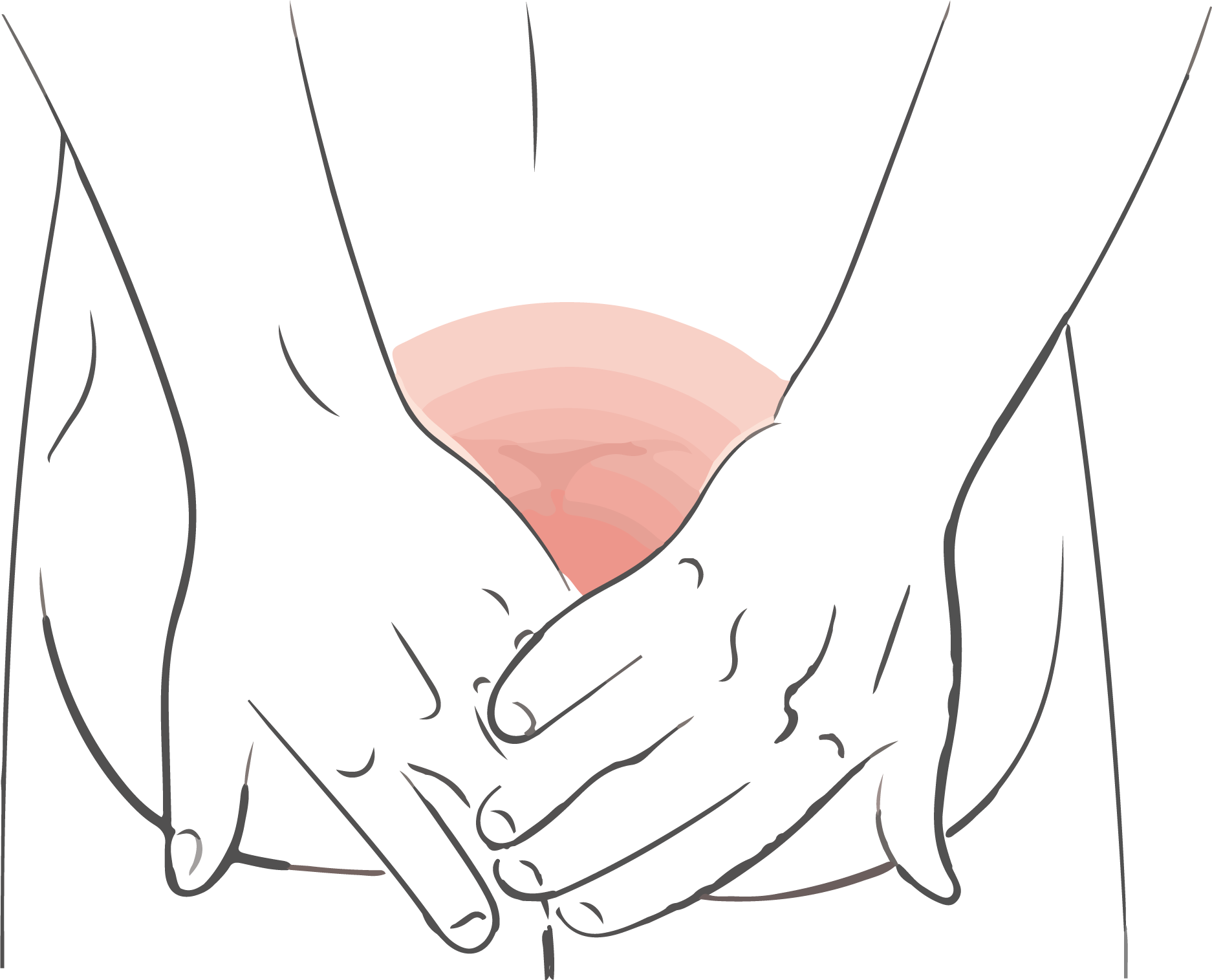Anal Itching (Pruritus Ani)
Anal itching refers to the uncomfortable sensation of itching or irritation around the anal area. It is
frequently accompanied by other symptoms of inflammation, including redness, warmth, and swelling.
It most commonly affects people aged 40 to 60 years old. Additionally, the symptoms are generally
worse at night since the hormone that dampens inflammation (i.e., cortisol) plummets during nighttime.

Causes of Anal itchiness
Chronic irritation is commonly caused by contamination with fecal debris. This effect is compounded by trauma, which results from excessive hygiene practices (e.g., rubbing, scratching).
Additionally, anorectal disorders, such as anal fissures, external or mixed hemorrhoids, and anal fistulas, can all cause anal itching. In certain cases, anal itching occurs without a clear cause. This is referred to as idiopathic anal itching.
- Skin conditions/diseases (e.g., eczema, psoriasis).
- Worm infestation.
- Bacterial infections (e.g. Anal abscess).
- Fungal infections (e.g., Candidiasis).
- Hygiene practices (e.g., excessive wiping, use of irritating products).
- Dietary factors – Allergy or hypersensitivity to certain types of food (e.g., spicy foods, caffeine, alcohol).
- Dietary factors – Allergy or hypersensitivity to certain types of food (e.g., spicy foods, caffeine, alcohol).
- Mucus leaks from hemorrhoids – Dirty fluid leaks out and irritates the skin of the anal rim.
- Irritation due to chronic fluid loss, which may be caused by anal incontinence.
- Irritation due to chronic fluid loss, which may be caused by anal incontinence.
- A skin tag or hemorrhoids
- Discharge from an anal fistula tract.
- Some surgical procedures.
- Scarring from previous surgical procedures.
European Review for Medical and Pharmacological Sciences 2006; 10: 327-335 Gupta Nursing Home, Laxminagar, NAGPUR
When to seek a professional physician?
Early intervention always helps identify the root causes and provide appropriate care. You don’t have to wait till the condition becomes chronic or severe to seek a professional health provider. If the anal itching, redness, and swelling are getting severe, it’s essential to seek medical evaluation and treatment. Note that signs of infection (e.g., fever, abscess) merit urgent medical intervention.
Although itching itself is not life-threatening, persistent scratching or irritation can precipitate complications such as irreversible skin damage and abscesses. For this reason, it’s essential to manage this symptom effectively and seek medical advice as early as possible.
Our Treatment – Guoyi Proctology Therapy
Minor Surgical removal is indicated for hemorrhoids, anal fissures, anal fistula, and anal abscesses.
Minor surgery for anal itching
In severe cases, we integrate the naturopathic Ba Zhi San ointment series with minor surgery to effectively address the underlying causes of concerns. This approach is very effective for anal itching when the underlying cause is prolapsed hemorrhoids, external hemorrhoids, mixed hemorrhoids, and skin tags.
Additionally, it is a critical procedure to treat severe conditions that precipitate anal itching, including chronic anal fissures, anal abscesses, and anal fistula. Anorectal minor surgery stands as a highly effective treatment method, especially when combined with the specialized Ba Zhi San anorectal ointment.
Anorectal Minor Surgical Procedure
This procedure uses local anesthesia to perform the incision and excision in a pain-free manner. After that, the full therapeutic effects of the Ba Zhi San ointment are leveraged to ensure the sphincters remain intact. This non-invasive procedure is reserved for addressing specific symptoms, including anal itching. The procedure spans 10 to 40 minutes and is carried out in an outpatient setting.
Some basics about minor surgical treatment include:
- No fasting is required
- No bedtime or hospitalization is required
- Local anesthesia (No risks of general anesthesia)
- All-in-one solution that resolves complex anorectal disorders
- Minimal pain compared to hemorrhoidectomy (i.e., the surgical removal of hemorrhoids)
- Possibility of same-day procedure
- Used the benefits of Ba Zhi San ointment
Individualized BZS (Ba Zhi San) Anorectal ointment treatment plan
BZHISAN ointments are cream-based medicines infused with a unique botanical formula that relieves pain, stops bleeding, reduces inflammation and swelling, combat infections, detoxifies the nearby tissues, eliminates slough, and promotes wound healing granulation. Each ointment serves a specific function at a specific location in the anal canal. In other words, your doctor will choose the best BAZHISAN ointment for you based on your symptoms, the location of the lesions, and previous responses to other types.
The BZS (Ba Zhi San) ointments restore proper muscle function and connective tissue, which resolves anal conditions. The pharmacological mechanism of these ointments includes the blockage of venous blood supply and the elimination of moisture from the body.
Based on your diagnosis, we recommend the use of our herbal cream for at least a few weeks (4-6 weeks) to fully resolve anal itching.
Lifestyle instructions to prevent other anal diseases
After the surgery and herbal treatment, we recommend that you make some lifestyle modifications to reduce the risk of relapse. These habits can also lower your risk of other anorectal disorders.
Here are some basic principles to prevent anal diseases:
- Break the vicious cycle of scratching and itching.
- Shower/wash immediately after exercise to avoid sweat irritation.
- Use cotton and loose-fitting underwear to improve ventilation and reduce moisture and irritation.
- A food sensitivity test is recommended as well as irritants, such as alcohol, beer, spices, dairy products, etc.

